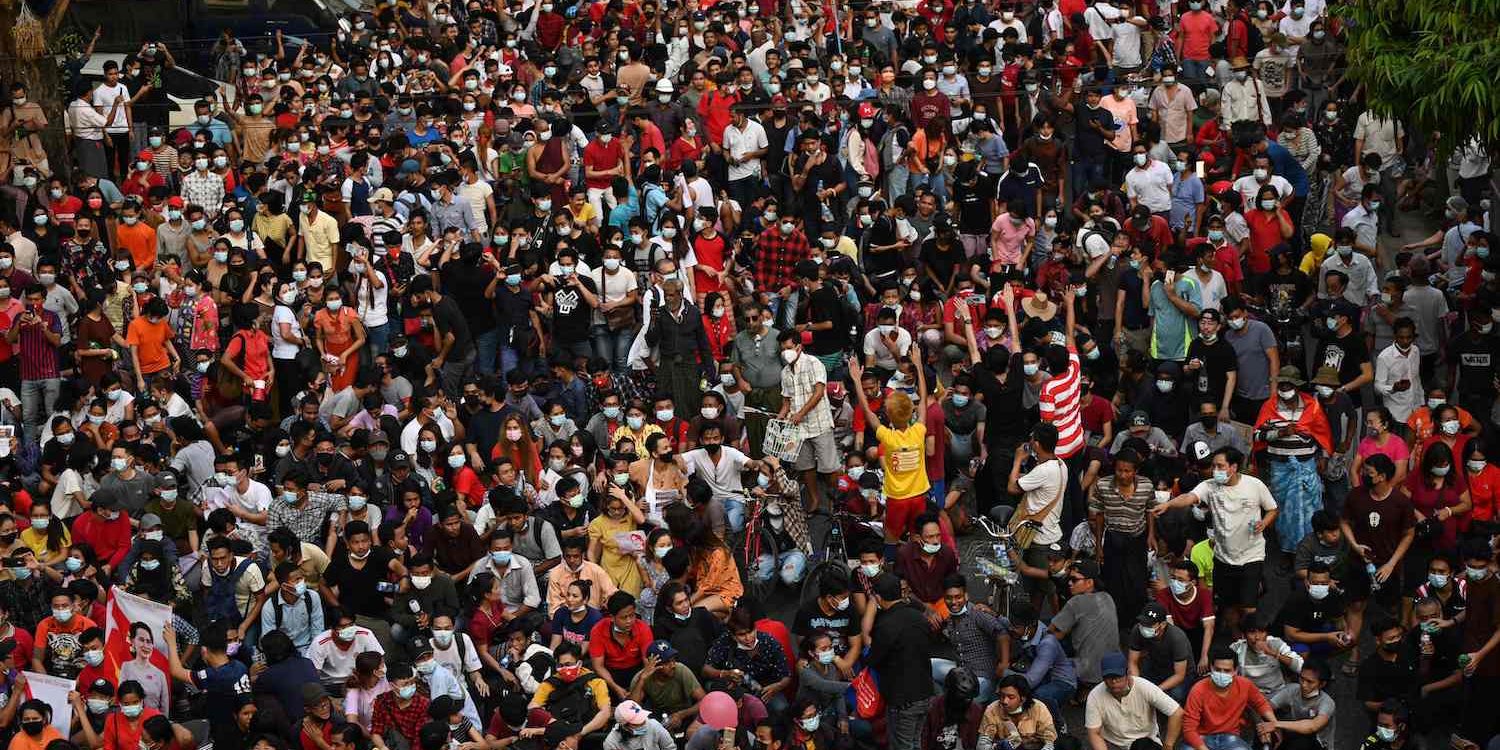As we enter Asian American and Pacific Islander (AAPI) Heritage Month, it is imperative that we turn our eyes to Myanmar and what they have been facing for months now. As we take this month to celebrate and educate ourselves about the histories and narratives of AAPI communities, we must act in solidarity with Myanmar and do what we can to fight for their liberation from an oppressive militant power. This is history in the making and it’s crucial that we act now for the communities in Myanmar.
Myanmar, formerly named Burma, has been in a year-long state of emergency since February 1st. On November 2nd, 2020, the National League For Democracy and Ms. Suu Kyi won the general election by a landslide victory. With this win, there should’ve been a peaceful transition into Ms. Suu Kyi’s term. However, the opposition, who were backed by Myanmar military forces, claimed fraudulence despite no evidence to support these claims. Accusations of fraud were thrown around and tensions rose higher and higher until one morning on February 1st, the Myanmar military arrested leaders and placed more than 400 elected members of the parliament under house arrest. The military seized Myanmar and declared a coup as they fought to falsify and dismiss the democratic outcome of the general election. This raid was just the beginning of what would be ongoing months of violence and obstruction in Myanmar.
With Myanmar under military control, many citizens have lost access to their most basic needs. On the day of the February 1st raid, the military cut off the internet, severed access to phone lines, and disrupted communication services. This meant that those in Myanmar could not contact one another or call for help from their relatives outside of the country. Not only were all lines of communication cut, but Myanmar citizens lost access to any financial services from their banks. The military’s decision to bar citizens from these basic needs successfully prevented the aid of outside help that Myanmar communities could call on to fight back against the military and its oppressive siege.
The violence of the Myanmar military was not one that would be met without opposition. Citizens, in reaction, began to and still are protesting against the oppressive powers of the Myanmar military. Communities have come out to fight back, including teachers, lawyers, students, bank officers, government workers. The power of tens of thousands of Myanmar protesters have been shown as protests began to erupt all over the country. In a fight for their rights and for their lives, they have been showing up over and over again.
The military, seeing the response from Myanmar citizens, quickly acted in an attempt to suppress the growing movement by imposing gathering limits and curfews as well as using violent methods in order to disperse large crowds of peaceful protestors. With the inhumanity and brutality acts from the military, many innocent lives have been lost in this fight. On March 27th, more than 100 people were killed. The violence from the oppressive military force shows that the Myanmar military will do anything in their power to suppress any opposition.
As Myanmar citizens continue to protest and fight for their lives, we must recognize our role in this fight. We have to educate ourselves and one another. We have to donate. Sign petitions. Contact our own local government officials. Do anything and everything that we can. We can no longer turn our backs to Myanmar’s fight, it will only continue to worsen. To fight for the liberation of all AAPI and Asian communities, we must fight for Myanmar.
Action Steps to Support Burmese Protesters & Resources:
+ Follow @bruinsbursa on Instagram to get more information
+ Donate to protestors in Myanmar
+ Reach out and offer support to any friends from Myanmar or those who have family from Myanmar
+ Contact U.S. government officials and call upon them to condemn the coup
+ Contact the United Nations Security Council and the United Nations Human Rights Council
+ Sign petitions and attend local protests and rallies in support of Burmese protestors
Thank you to UCLA’s Burmese Student Association (BURSA) for resources and their advocacy efforts.




